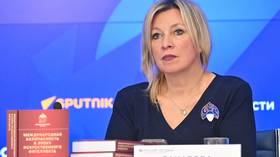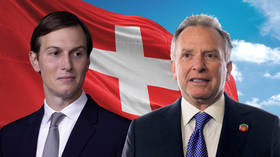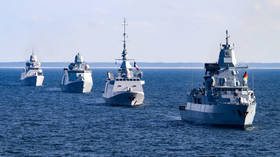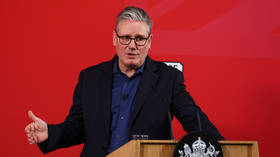US-Russia sanctions war a golden opportunity
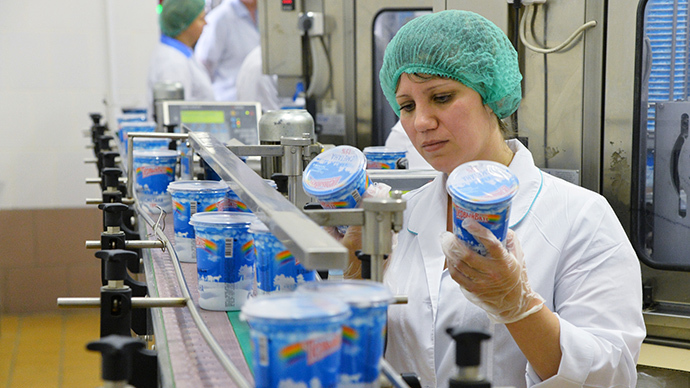
Now, it all depends on how well Russia’s leaders realize the chance they have to turn adversity into opportunity.
The ongoing US-led financial and economic sanctions war against Russia being waged by Washington and European NATO countries in recent weeks holds the seeds of a profound revolution in the global food chain, and a sound defeat for the globalized industrial “agribusiness revolution” of the past 50+ years that has so ruined the health and nutrition of most of the world.
After patiently waiting during weeks of escalating sanctions on the financial, energy and defense sectors of the Russian economy over the ongoing crisis in Ukraine for precisely what crime or crimes no one is even certain anymore, Russian President Vladimir Putin and Prime Minister Dmitry Medvedev have finally made a definitive response.
Vladimir Putin signed a decree on August 6 banning imports of agricultural and food products from countries that have imposed sanctions on Russia. Moscow has banned beef, pork, poultry and dairy products, as well as fruit and vegetables from the United States, the European Union, Canada, Australia and Norway for one year.
Basta! Done. Borders with Russia, Belarus and Kazakhstan all closed to EU food imports. Lorries sent back home, full.
The EU states demanded an “emergency” meeting to discuss the situation, as if they were somehow innocent of any provocation with their draconian and escalating economic and banking sanctions against key Russian industries. On 14 August in Brussels, senior agriculture officials from all 28 European Union countries will hold an emergency meeting to analyze the impact of the Russian ban on EU food imports. And in classical bureaucratic fashion the impotent EU Commission said that it “reserves the right to respond,” whatever that means, and will set up a task force on August 11 to “assess the situation.”
It doesn’t take an EU task force to assess that the Russian food ban is a devastating blow to EU farmers who can ill afford such a blow. Fully 10 percent of EU agricultural exports go to Russia annually with a total value of around €11 billion according to official EU Commission figures.
Russia finds solutions
The sanctions crisis is in another perspective a golden opportunity for Russia and its key allies, especially the BRICS states where Brazil, Russia, India, China and South Africa just signed an historic mutual agreement to create a unique economic infrastructure bank and currency defense fund. The EU Commission announced it planned to lobby Latin American countries like Brazil and Chile to “solidarize” with the EU sanctions. They apparently live on a different planet.
Now Russia is already in negotiations with BRICS partner Brazil to boost imports from that major food export nation and economic partner. Russia's state agricultural supervisor, the Federal Veterinary and Phytosanitary Inspection Service, held talks with representatives of Brazil, Argentina, Ecuador and Chile on the prospect of increasing food imports from the region just after the ban took effect. Brazil authorized the immediate export of chicken, beef and pork from 90 meat plants to Russia, and expects to boost exports in other categories as well. "Russia has the potential to be a large consumer of agricultural commodities, not just meat," Seneri Paludo, Brazil's Secretary for Agriculture stated.
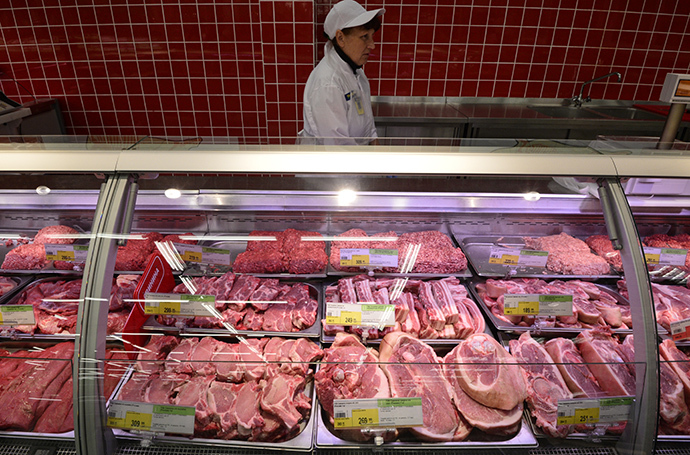
Turkey, where newly-elected President Recep Tayyip Erdogan has been drawing closer to cooperation with Russia as Washington increasingly targets the Turkish leader for not being part of Washington’s New World Order, is discussing increasing Turkish food exports to neighboring Russia. Russian food companies have also negotiated with Turkey to offset the loss of EU foods, according to Turkish Exporters Assembly chairman, Mehmet Buyukeksi. "Demand from Russia for Turkish products increased after limits to trade with the U.S. and EU were introduced," Buyukeksi said. A Russian delegation arrives in Turkey this week to discuss details. Buyukeksie expects a significant increase in poultry and seafood exports, and also fruit and vegetables.
Reviving Russia’s natural agriculture
But by far the most important possible consequence from the food crisis is the opportunity to roll-back two decades of destruction of Russian consumer food quality through imports of industrialized agribusiness products from the EU and USA, of everything from industrially-processed chickens, meat, fish to GMO soybeans and corn.
In a recent visit to Moscow and St. Petersburg I took the occasion to examine the shelves of typical Russian supermarkets. The offerings on display were virtually identical to that in a German REWE or major French supermarket chains like Carrefour. Nestle, Unilever, Kraft, Kellogg’s dominated. And as has been amply documented, the nutritional quality of those western agribusiness imports is often worse than nil—it is actually harmful to consumers over long periods. Excessive forms of sugars, MSG, flavor enhancing chemicals. The EU tomatoes are sprayed typically with chemical preservatives to look “fresh-picked” on arrival in Moscow. A taste test confirms they are not worth biting.
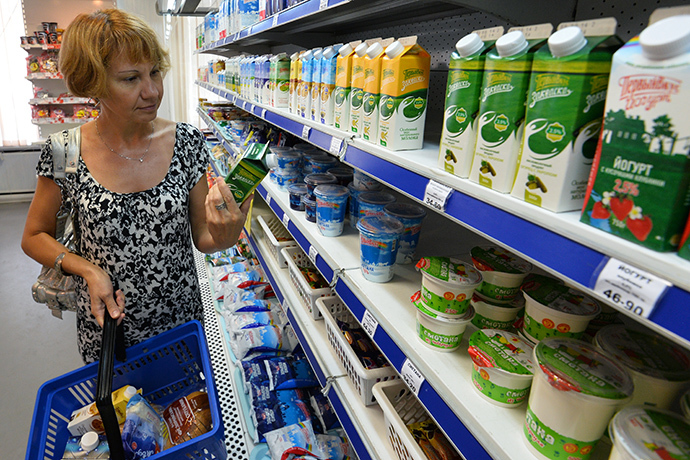
A real Russian tomato
My first visit to the Russian Federation took place in 1994 when I was invited to deliver a lecture in Moscow on the perils of dealing with the IMF. I had flown in from Frankfurt where I lived at the time. At a simple lunch given by the conference hosts, a successor to IMEMO, I ate a tomato salad. My mouth watered to actually taste a real tomato as I had in my youth. Russian agriculture in the Soviet era, as backward and inefficient as it was, had one sterling advantage over that of the USA or EU. Because of the military demands on the chemical industry, no or almost no chemical fertilizers or herbicides were sprayed on the food. It was real, natural food.
I often spoke of this experience with many Russian friends. They had forgotten actually how tasty it was, tasty because it’s natural. Now, out of the necessity of the embargo, the Medvedev government has the opportunity to roll-back two decades of WTO “free trade” strictures and to subsidize domestic natural or as the EU prefers to call it, “organic” agriculture. If done right, if treated as a national food security priority, it could revive countless dying rural areas where farmers were bankrupted after 1991 by the flood of cheap EU and USA food imports, dumped deliberately to force a Russian strategic dependency on NATO for its own food security.
As one commentator put it, “Russian products are GMO-free, and they have much less preservatives, antibiotics, colors, taste enhancers, or pesticides. And since they are local, they don't need to be brought in by using the kind of refrigeration/preservation techniques which typically make products taste like cardboard. In other words, Russian agricultural products taste much better, but that is not enough to complete. This embargo now gives them a powerful boost to invest, develop and conquer market shares.”
The statements, views and opinions expressed in this column are solely those of the author and do not necessarily represent those of RT.
The statements, views and opinions expressed in this column are solely those of the author and do not necessarily represent those of RT.





